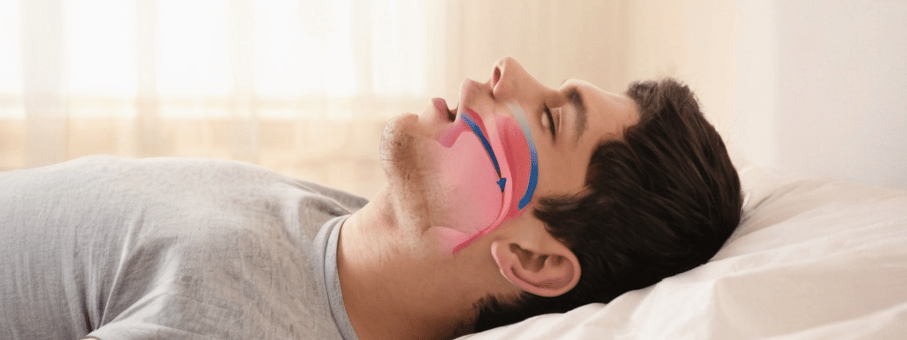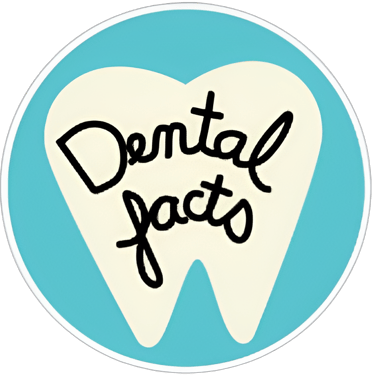The Effects of Mouth Breathing on Oral and Respiratory Health
Mouth breathing can negatively affect both oral and respiratory health. It can increase the risk of cavities, bad breath, gum inflammation, and dental malocclusions, as well as raise the chances of respiratory infections, snoring, and sleep apnea. Whenever possible, it is better to breathe through the nose and consult a specialist if you have difficulty doing so.
Mouth breathing can negatively affect both oral and respiratory health. It can increase the risk of cavities, bad breath, gum inflammation, and dental malocclusions, as well as raise the chances of respiratory infections, snoring, and sleep apnea. Whenever possible, it is better to breathe through the nose and consult a specialist if you have difficulty doing so.
1/11/2024・4 min read




Breathing is an essential function of our body. Normally, we breathe through the nose, which is the most natural and beneficial way for our health. However, in certain situations, we may find ourselves breathing through the mouth.
What happens when we breathe through the mouth? Although it may seem harmless, mouth breathing can have negative effects on both oral health and respiratory health.
Effects on Oral Health
One of the main consequences of mouth breathing is its impact on dental and facial growth and development. When we breathe through the mouth, the tongue tends to rest in a lower position, which can interfere with the proper development of the jaws and the alignment of the teeth. This may lead to problems such as dental malocclusion and bite irregularities.
Another common consequence of mouth breathing is gingivitis, which manifests as gum inflammation. This type of breathing reduces saliva production, which promotes bacterial buildup in the mouth and increases the risk of periodontal (gum) disease.
Additionally, mouth breathing is associated with halitosis, or bad breath. Dry mouth and bacterial accumulation can produce unpleasant odors, which may negatively affect self-confidence and social interactions.
Effects on Respiratory Health
Mouth breathing can also have consequences for respiratory health. When air is inhaled through the mouth, bacteria and particles from the environment enter the lungs directly, without being properly filtered and humidified by the nose. This increases the risk of respiratory infections, such as colds, bronchitis, or pneumonia.
Mouth breathing is also linked to snoring and obstructive sleep apnea. Breathing through the mouth during sleep can block the upper airways, restricting airflow and leading to snoring or even brief interruptions in breathing during sleep.
Conclusion
In summary, mouth breathing can have negative effects on both oral and respiratory health. It is important to maintain good oral hygiene, visit your dentist regularly, and consult a specialist if you experience breathing problems during sleep. Whenever possible, it is best to breathe through the nose, as this is the most natural and healthiest way to inhale air.




Breathing is an essential function of our body. Normally, we breathe through the nose, which is the most natural and beneficial way for our health. However, in certain situations, we may find ourselves breathing through the mouth.
What happens when we breathe through the mouth? Although it may seem harmless, mouth breathing can have negative effects on both oral health and respiratory health.
Effects on Oral Health
One of the main consequences of mouth breathing is its impact on dental and facial growth and development. When we breathe through the mouth, the tongue tends to rest in a lower position, which can interfere with the proper development of the jaws and the alignment of the teeth. This may lead to problems such as dental malocclusion and bite irregularities.
Another common consequence of mouth breathing is gingivitis, which manifests as gum inflammation. This type of breathing reduces saliva production, which promotes bacterial buildup in the mouth and increases the risk of periodontal (gum) disease.
Additionally, mouth breathing is associated with halitosis, or bad breath. Dry mouth and bacterial accumulation can produce unpleasant odors, which may negatively affect self-confidence and social interactions.
Effects on Respiratory Health
Mouth breathing can also have consequences for respiratory health. When air is inhaled through the mouth, bacteria and particles from the environment enter the lungs directly, without being properly filtered and humidified by the nose. This increases the risk of respiratory infections, such as colds, bronchitis, or pneumonia.
Mouth breathing is also linked to snoring and obstructive sleep apnea. Breathing through the mouth during sleep can block the upper airways, restricting airflow and leading to snoring or even brief interruptions in breathing during sleep.
Conclusion
In summary, mouth breathing can have negative effects on both oral and respiratory health. It is important to maintain good oral hygiene, visit your dentist regularly, and consult a specialist if you experience breathing problems during sleep. Whenever possible, it is best to breathe through the nose, as this is the most natural and healthiest way to inhale air.



